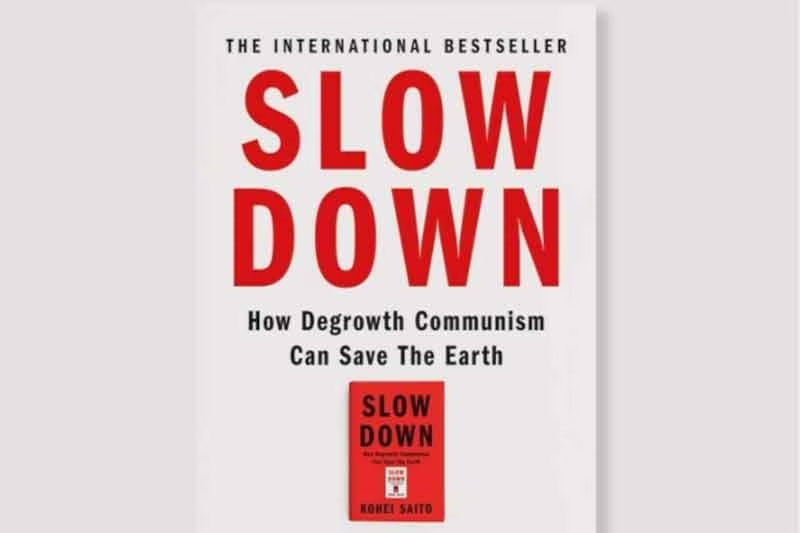
As a biologist I have a deep love for the extraordinary web of life of which we are a part, as well as some special insights into the destruction we are wreaking. However, I am deeply concerned that unless we deal with the real source of our problems, which is surely us humans, then our attempts to bring an end to environmental devastation will continue to be ineffectual. Lately, through the work of biologist Jeremy Griffith and the World Transformation Movement, I have found reason to be optimistic about what lies ahead of us, that a transformed world is possible, for our planet and its inhabitants.
The destruction we cause is clearly not a result of lack of awareness: we know what we are doing. So why do we do it? Why are we apathetic, selfish and destructive? I am convinced this behaviour is not a side effect of modern living but stems from a deep psychological disturbance within our species. If we sit calmly and introspect, it is evident that we are driven by an anxiety that makes us constantly search of happiness; but the happiness we are searching for lies outside because it doesn’t deal with what is driving us. I suggest this very deep anxiety is so disturbing that for most of the time we live in denial of it – but if we are to properly solve the environmental crisis, we have to face it and fix it; we have to fix this environmental crisis inside our heads.
Our disturbed state of mind might be described as the ‘human condition’. It has long been the subject of intellectual inquiry, an inquiry that these famous insights help to frame:
Journalist and educator, Richard Heinberg, in Memories & Visions of Paradise, surveyed myth and religion around the world, and concluded that “For whatever reason, the hearts and minds of human beings became separated from the source of their own being, and shame, fear and greed appeared in consequence.”
In On the Origin of Species, Charles Darwin pointed the way to ending humanity’s “war against himself”, when he predicted that “psychology would one day rest on a new foundation.”
Biologist E.O. Wilson was talking about the critical importance of finding this “new foundation”, when he wrote, “There is no grail more elusive or precious in the life of the mind than the key to understanding the human condition.”
At the heart of the challenge to find this “grail…of…understanding the human condition” lies the pressing question: Why do humans, with our extraordinary mental capacities, continue to struggle with behaviours rooted in selfishness, aggression, and division?
We have sought to justify our divisive behaviours as vestiges of our evolutionary past – remnants of survival instincts inherited from our animal ancestors. Biologists like Wilson have championed this view, suggesting that traits like aggression and selfishness are expressions of our genetic drive to survive and reproduce. But this explanation falls short in addressing the full complexity of human behaviour. The emotions we experience – anger, arrogance, guilt, depression, neuroticism, alienation – are deeply tied to our conscious minds. They reveal that our struggle is not simply biological but psychological.
Jeremy Griffith and the World Transformation Movement
So it is clear, a revolutionary approach is urgently needed – one that recognises the psychological dimensions of human behaviour. Australian biologist Jeremy Griffith, author of FREEDOM: The End of the Human Condition and founder of the World Transformation Movement, offers a unique perspective that has the potential to change our collective mindset to one of loving cooperation and reconciliation, which will in turn begin to reverse our environmental crises. Griffith argues that our alienation and antipathy toward the natural world was born with our species’ transition to full consciousness. When humans became self-aware, a psychological conflict emerged between the instincts that had guided our species for millennia and the new, rational mind trying to navigate a world of complexity and uncertainty.
Esteemed ecologist and Professor Emeritus of Biology at San Diego State University, Professor Stuart Hurlbert, expressed his admiration for Griffith’s work, saying, “I am stunned and honored to have lived to see the coming of ‘Darwin II.’” Similarly, Professor Harry Prosen, a former president of the Canadian Psychiatric Association, has called Griffith’s biological explanation of the human condition “the holy grail of insight we have sought for the psychological rehabilitation of the human race”.
Griffith’s explanation of the human condition hinges on understanding the difference between our instincts and intellect. While natural selection shapes species’ instincts – like the migratory paths of birds – a conscious mind requires understanding to function. As this fully conscious mind began exploring and seeking comprehension, it inevitably clashed with pre-existing instincts that were resistant to these new, self-guided experiments.
This conflict between our instincts and intellect led to an unwarranted sense of guilt and insecurity, which in turn made us psychologically defensive, angry, alienated, and egocentric. These feelings form what we call the human condition – an emotional state we tried to alleviate through competitive, selfish, and aggressive pursuits of power, fame, wealth, and glory. However, now that we can understand and explain this conflict and the guilt it generated, these insecure, defensive behaviours become obsolete. With this newfound clarity, we are able to free ourselves from the human condition.
A rehabilitating insight into human behaviour that can precipitate a world-transforming movement could not come at a more critical time. The environment, with its delicate ecosystems and the interconnectedness of life, and a harmonious relationship with other species is essential to our well-being, and our existence. Only through a world-transforming movement that deals with the source of our destructive behaviour can we profoundly address these fundamental issues and restore harmony between humanity and the planet. So, I consider the World Transformation Movement, rooted in deep introspection and a profound rethinking of our priorities, has the potential to change the world, heal the environmental crisis and ensure an enlightened and sustainable future for generations to come.
Subscribe to Our Newsletter
Get the latest CounterCurrents updates delivered straight to your inbox.
Dr Chanchal Malhotra holds a Master’s in Botany and a Doctorate in Biotechnology (Plant Physiology). She is a former Assistant Professor of Botany at Baba Mastnath University in Rohtak, Haryana, India and is currently a Senior Academic Consultant in a government organisation. She has published numerous papers in peer-reviewed journals; has presented biodiversity awareness programmes at international conferences; is on the Editorial Board of the Journal of Biodiversity and Conservation (JBC); and is a Series Editor for Futuristic Trends in Biotechnology. She is also an Advisory Committee Member of the Ambika Prasad Research Foundation, an active platform to create awareness about environment related issues.












































